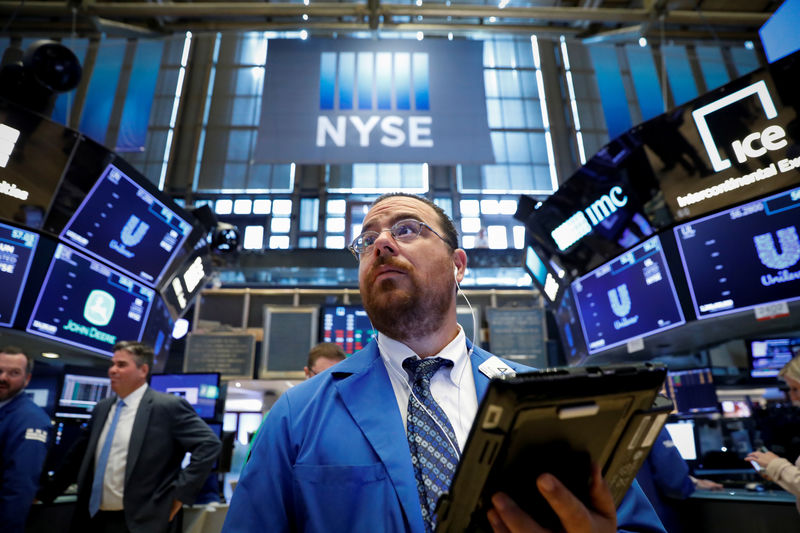By Noreen Burke
Investing.com - This week market watchers will be looking at economic data releases for early indications of the scale of the impact from the coronavirus pandemic, but the main focus will continue to be on the response from governments and central banks who are ramping up stimulus measures amid market fears over whether steps announced so far will be adequate. Here’s what you need to know to start your week.
- Data to show early economic hit from virus
Few doubt that the global economy will tip into recession as countries around the globe go into lockdown amid ongoing virus containment efforts. It goes without saying that large drops are likely in PMI data coming out this week in the U.S., Eurozone and the U.K.
The PMI surveys are typically conducted in the second half of a month and the data in the "flash" survey is usually collected in the week or so before the data is released, so economists reckon next week's PMIs will provide the most comprehensive overview so far of the coronavirus impact.
Meanwhile, Thursday’s figures on initial jobless claims will be the first to show the full extent of the impact on the U.S. labor market. Economists at Goldman Sachs have estimated claims are set to jump to a record 2.25 million, according to an analysis of preliminary reports across 30 states.
- U.S. government response awaited
Republicans and Democrats in the U.S. Senate on Saturday continued with efforts to reach a deal on a $1 trillion-plus bill aimed at mitigating the coronavirus pandemic’s economic fallout for workers and businesses.
White House economic adviser Larry Kudlow said he expects the final legislative package to be worth $1.3 trillion to $1.4 trillion.
Taken together with steps already taken by the U.S. Federal Reserve and the administration, the prospective bill would have a $2 trillion net impact on a U.S. economy, according to White House officials.
- Liquidity squeeze to ease?
A liquidity squeeze prompted the Federal Reserve on Friday to enhance the dollar liquidity swap line arrangements it has with the Bank of Canada, Bank of England, Bank of Japan, European Central Bank and Swiss National Bank.
To see if that does the trick, watch for dollar exchange rates to stabilize.
Demand for the world’s reserve currency had jumped amid a rush for cash in anticipation of a prolonged pandemic, with there being a substantial liquidity mismatch between global demand for U.S. dollars and those on offer.
- U.S stock valuation picture may become clearer
As the U.S. stock market has tumbled, valuations have also come down sharply.
The S&P 500's price-to-earnings ratio, based on earnings estimates for the next year, has dropped from over 19 times in late February to 14.2 times as of last Wednesday, according to Refinitiv data, taking the valuation below its historical average.
But the picture is complicated by the fact that earnings estimates may have not come down enough to account for the coronavirus fallout.
The picture may become clearer in the coming weeks, as the first quarter comes to an end and companies start preparing their results. Last week, FedEx (NYSE:FDX) and Marriott (NASDAQ:MAR) withdrew their 2020 financial forecasts because of the outbreak.
Nike (NYSE:NKE), Micron Technology (NASDAQ:MU), and KB Home (NYSE:KBH) are among the U.S. companies due to report results this week.
- Emerging markets
Emerging market assets have been hammered, with currencies plunging to fresh record lows, bonds plunging and stocks down nearly 10% last week. Several factors have contributed - the strong dollar, a darkening economic outlook, tumbling oil prices as well as rising borrowing costs.
Investors piling into the greenback have seen enduring stresses in dollar funding markets, with hurried swap lines between central banks earlier in the week doing little to alleviate the credit strains at the heart of the problem.
Central banks in the United States, the euro zone, Canada, Britain, Japan and Switzerland stepped in again on Friday, agreeing to increase the frequency of their one-week U.S. dollar credit facility.
In emerging markets, policymakers that lack the firepower to support currencies or face challenges to cut rates, will be keeping their fingers crossed that steps taken by major central banks will be enough to end the crisis.
--Reuters contributed to this report
